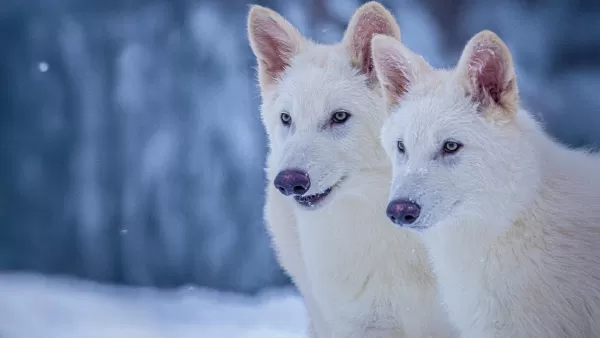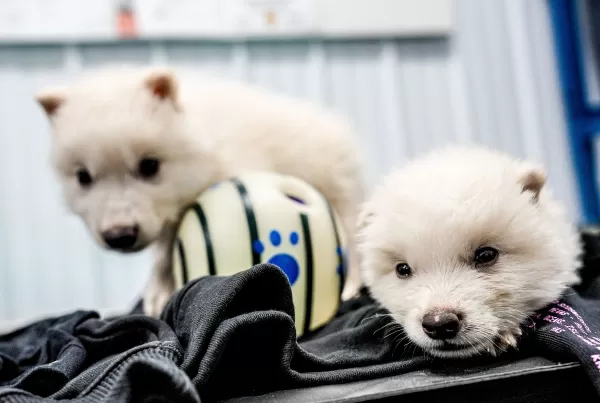Imagine a scenario straight out of a blockbuster movie, where the revival of a colossal canine from 12,500 years ago involves special effects like gnawed flesh and buckets of fake intestines. But this isn't fiction; it's a reality crafted by the biotech company Colossal Biosciences. They've brought back the dire wolf, and now three of these majestic creatures—Romulus, Remus, and their younger sister, Khaleesi—reside in a secret location in the US.

Using DNA from the common gray wolf, advanced gene-editing techniques, and domestic dog surrogates, Colossal Biosciences has achieved what many would consider a feat of science fiction. These dire wolves, embodying the dreams of any mother of dragons, are huge, white, and undeniably awe-inspiring.
Ben Lamm, CEO of Colossal, expressed immense pride in his team's accomplishment, stating, “I could not be more proud of the team. This massive milestone is the first of many coming examples demonstrating that our end-to-end de-extinction technology stack works.” The team's success in creating healthy dire wolf puppies from DNA extracted from a 13,000-year-old tooth and a 72,000-year-old skull showcases a technological marvel that blurs the line between science and magic.

Colossal Biosciences isn't new to making headlines. They previously engineered a Colossal Woolly Mouse, resembling a mammoth, using computational analysis of various mammoth genomes. However, critics argue that these dire wolves are essentially normal wolves in a genetic costume, questioning whether the existing dire wolf DNA is sufficient to create a true genetic clone.
Beyond the spectacle, Colossal Bioscience's mission transcends mere social media buzz or pet ownership. The company aims to leverage its findings to preserve current Earth's species for future generations. Dr. Christopher Mason, a scientific advisor and board member at Colossal, emphasized the broader impact, saying, “The de-extinction of the dire wolf and an end-to-end system for de-extinction is transformative and heralds an entirely new era of human stewardship of life.” He highlighted how the technologies used could also aid in conserving other endangered species, marking a significant advancement in genetic engineering for science, conservation, and the preservation of life.
Colossal Biosciences has collaborated with the American Humane Society and the USDA to ensure the welfare of these dire wolves, who live on a vast 2,000+ acre preserve. With a dedicated team of staff attending to their needs, these dire wolves are not just scientific marvels but also well-cared-for residents of their new home.






